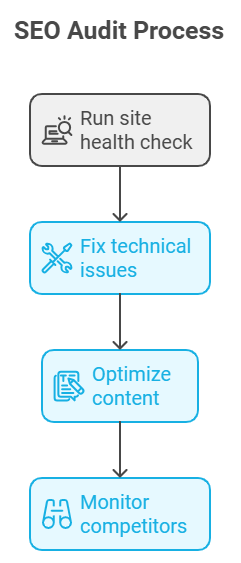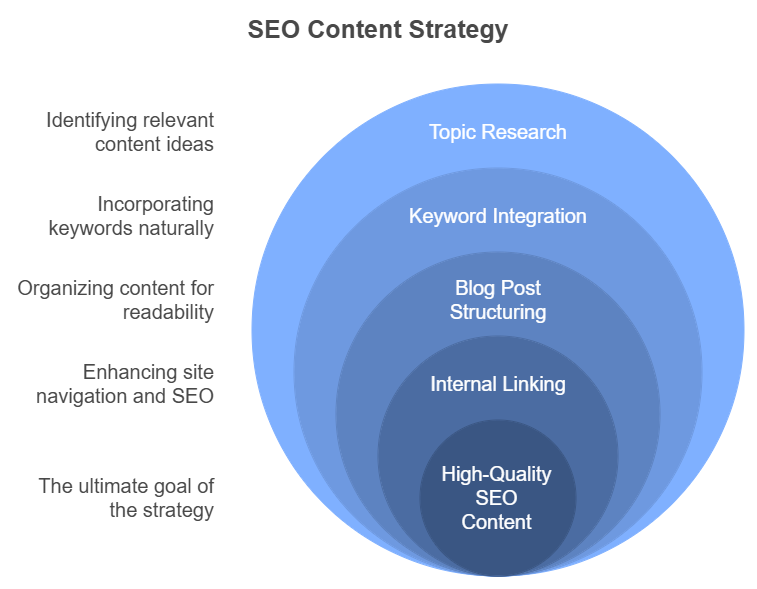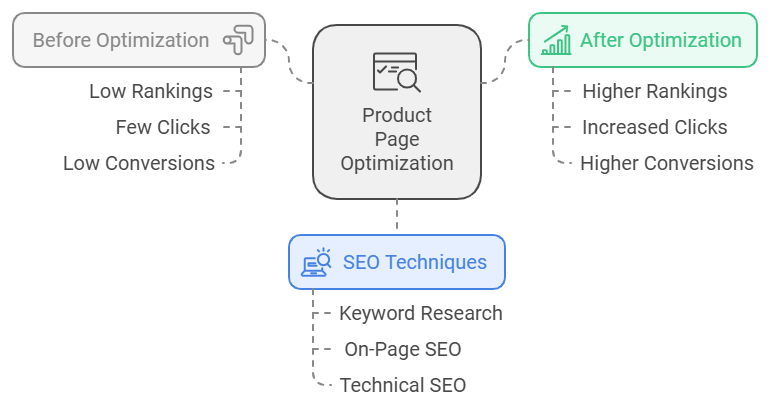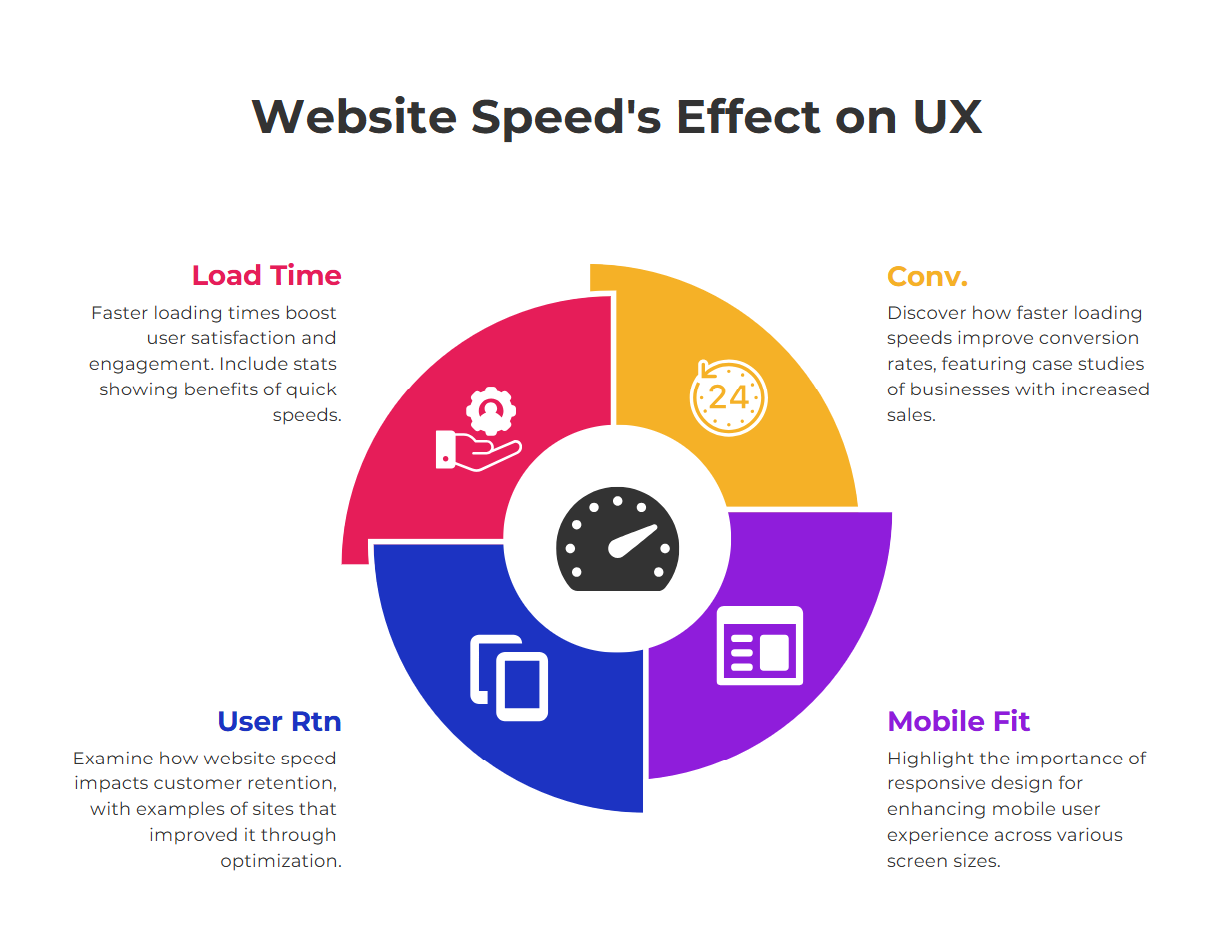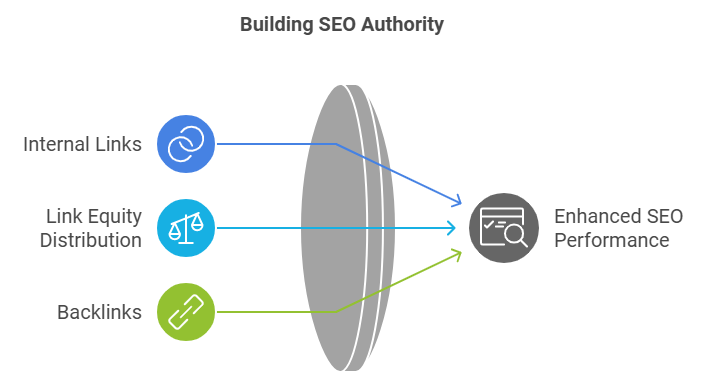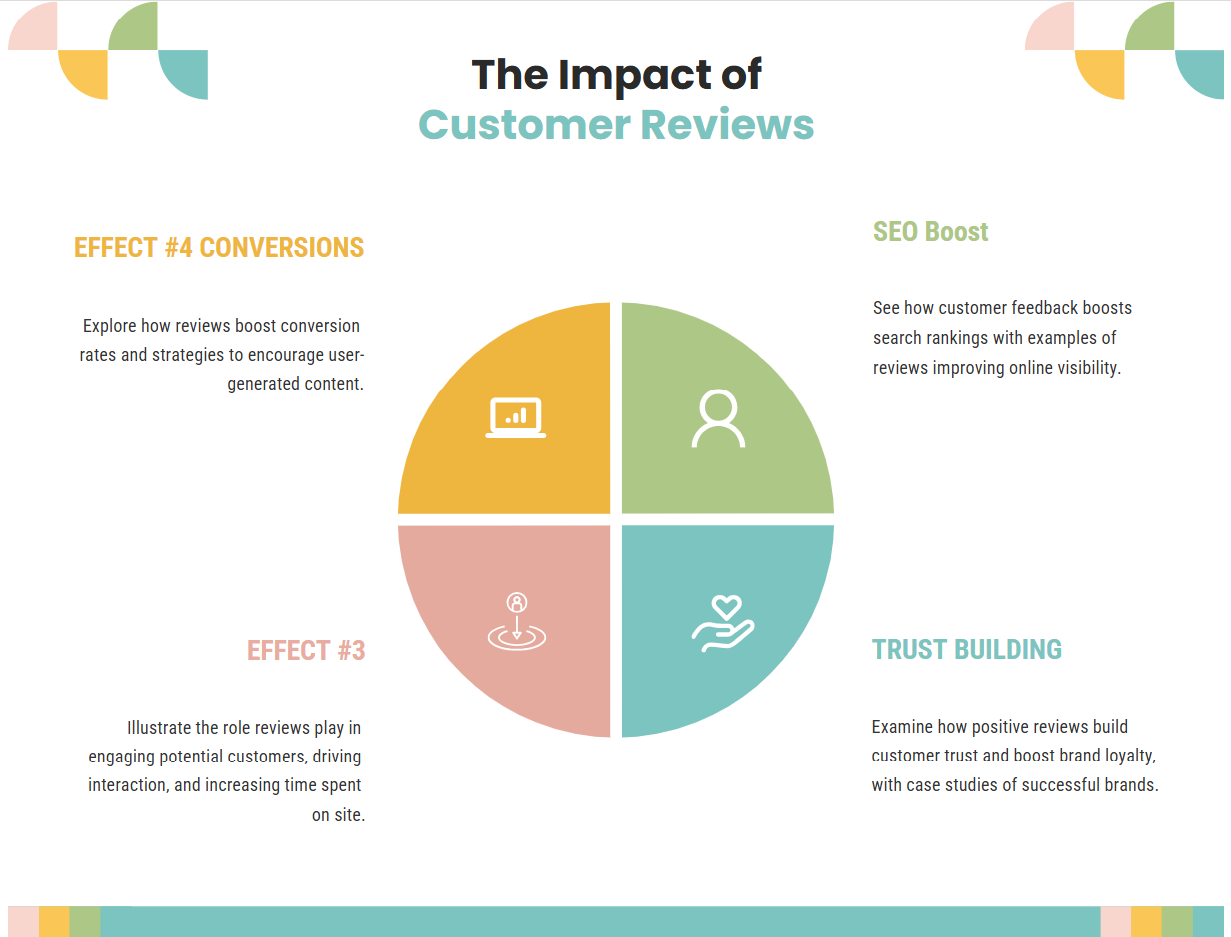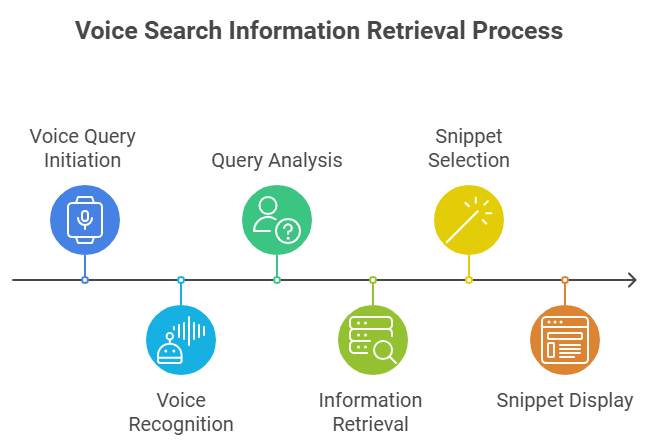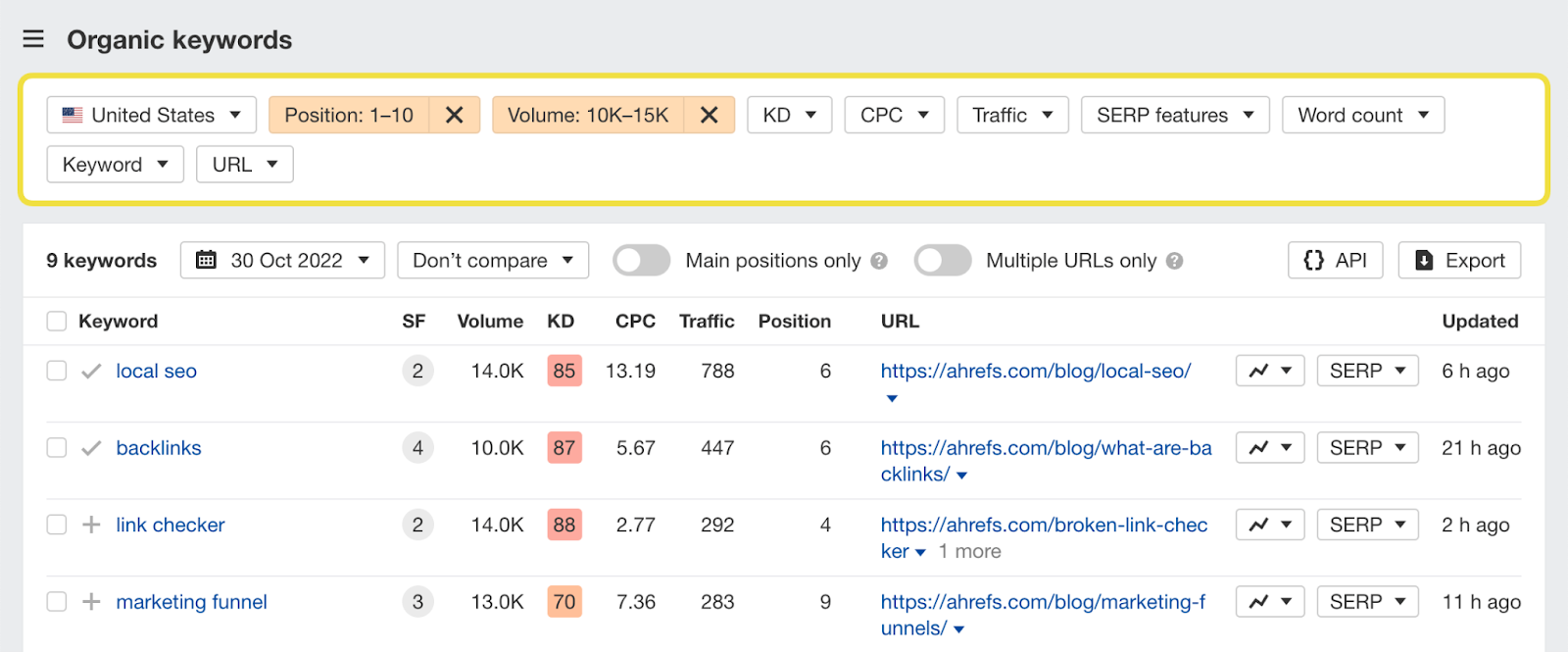Introduction: The Importance of SEO for E-commerce
Did you know?
93% of online experiences start with a search engine, making SEO for e-commerce websites a critical strategy for boosting online sales and increasing organic traffic. According to ImForza, effective SEO improves visibility and drives more people to your site. In other words, if your website isn’t optimized, your e-commerce business probably isn’t going to make it.
The Challenge for E-commerce Businesses
The e-commerce sector is booming, but so are the competitors. Thousands of businesses compete for the same audience, and this increases the challenge to stand out. Paid ads may immediately provide visibility, but they’re cost-intensive and only temporary. The store will face challenges and may fail to attract consistent traffic and revenue if the SEO strategy is not right.
Ranking #1 on Google isn’t just about prestige; it can be a game-changer. It can bring the traffic, conversions, and sales that will help a business get ahead of its competition.
SEO Optimization for E-commerce: The Foundation of Online Store Success
SEO is more than keywords and meta tags. It’s a holistic approach toward making your online store Rank #1 on Google. Organic SEO brings along with it:
- Sustainable Growth in Traffic: Unlike paid advertisements, organic traffic grows over time.
- Higher ROI: For every dollar spent, SEO delivers long-term value.
- Trust and Credibility: The organic results are more trusted by the users than paid listings. SEO, therefore, forms the bedrock for trust in customers.
While many e-commerce companies spend on advertisements, those that invest in SEO set a foundation for long-term success.
What This Blog Offers
This blog is a step by step guide for the top 10 e-commerce SEO strategies that have been proven to rank your site higher on Google, drive organic traffic to increase sales. These strategies are tailored for:
- E-commerce store owners who want to expand their reach.
- Digital marketing experts looking for actionable insights.
- SEO specialists aiming to enhance their skillset.
By the end of it you’ll have a strong action plan for getting your website to a place where it’s optimized for leads, it’s attracting a target audience of your ideal customers, and then turns clicks into conversions.
SEO Audit
Why Regular SEO Audits are Crucial
An effective SEO audit for e-commerce websites is the critical first step in developing advanced e-commerce SEO strategies that can dramatically improve your online store’s performance.
You can discover what is getting in the way at a more technical level, where optimization opportunities exist, and ensure that your website runs in sync with Google’s constantly changing algorithms. Audits not only ensure your site stays healthy but also allows you to stay ahead of competitors.
Actionable Tips for an Effective SEO Audit
Use SEO Audit Tools
- Use SEMrush, Ahrefs and Google Search Console to get a good idea of how good or bad your site is with these tools.
- Try to find metrics such as crawlability, indexing errors, keyword performance and back link quality.
Check for Technical Issues
- Broken Links: Search for any links that redirect to 404 pages.
- Duplicate Content: Prevent your product descriptions and blog from suffering penalization by making sure they are unique.
- Missing Alt Text: Use the descriptive alt text to optimize all images for better accessibility and SEO.
- Page Load Speed: There are tools that can help you spot and resolve speed and user experience issues that undermine rankings and user experience including Google PageSpeed Insights.
Audit Content Performance
- Use Google Analytics and SEO tools to analyze your top performing pages.
- Update the keywords for underperforming pages, their meta descriptions, and attention grabbing CTAs.
Monitor Competitors
- Analyse your competitors to find out where you lack.
- Look into their backlink profiles, keywords and maybe even content strategy (to see what you can learn and take advantage of for your own).
Why It Works
SEO audit takes care that your e-commerce site can function at its best. There are two things you’re doing when you are fixing technical issues and optimalizing content: you’re helping with performance and you’re keeping up with algorithm changes. It basically works proactively on maintaining or increasing the ranking of your web site in Google that eventually results in increasing more organic traffic as well as sales.
Conduct In-Depth Keyword Research
Why Keyword Research is the Foundation
E-commerce keyword research is the foundational element of advanced SEO strategies, enabling online stores to target high-intent search terms and boost e-commerce sales effectively. Without this, you’re doing the wrong things to the wrong terms —a wasted effort, or a lost opportunity. If you can find the right keywords, you will bring your content into focus with what your potential customers are currently searching for. It helps to improve the visibility of your products or services, drive more clicks and traffic to your website and most importantly convert those unique visitors into paying customers.
Doing effective keyword research means you wouldn’t focus on those terms that have high search volumes but not those which correspond to the search intent of your audience. Knowing why people search —whether the search is to find information about a product, to buy it, or to do a service— enables digital marketers to craft their words and content towards their desires.
Actionable Tips for In-Depth Keyword Research
Use Tools Like Google Keyword Planner, Ahrefs, and SEMrush
As long as you are using advanced keyword research tools like Ahrefs or SEMrush – Google Keyword Planner – you can then identify the best keywords for your e-commerce site. These platforms offer:
- Search Volume Data: Know which search terms are trending hot.
- Keyword Difficulty: You can find keywords that have a high traffic but low competition and focus on ranking.
- Long-Tail Keywords: They are very specific and marketing volume keywords, trading quality conversions for quantity, as they land you in front of more motivated buyers.
For instance, you won’t be limited to just “e-commerce SEO,” for example, you could instead go for “SEO for Shopify stores” or “top e-commerce SEO strategies for online stores.” Often, these long tail keywords have higher intent, in which case they’re more valuable for conversion.
Focus on User Intent
Keyword research shouldn’t be conducted without understanding user intent. Keywords can be categorized into several types, and knowing which type is relevant to your audience can significantly improve your SEO efforts:
- Transactional Intent: Buyers are looking to buy something. Keywords like “buy SEO tools for e-commerce” or “e-commerce SEO services” target these users.
- Informational Intent: The users want to know something. For this category, keywords would be something like “how to improve e-commerce SEO” or “e-commerce SEO tips”.
- Navigational Intent: Users are looking for a specific website or page, like “Shopify SEO guide.”
The more you hit the target behind the search query, the more your content will match the expectations of your audience and the more likely for conversions.
Monitor Competitors
Another although effective way is to do a competitor analysis for their keyword strategy. This will give you insight on what the keywords your competitors are targeting and ranking on. It gives you a good idea of what they are doing right and what you can use to your advantage.
For instance, suppose that a competitor is ranking very well for a specific keyword, but is only offering simple content; you can make the most of this by creating deeper content full of user value.
Identify Content Gaps
Through competitor analysis you can also spot keywords or topics that competitors are overlooking that are important to your audience. These are opportunities to close the content gaps with more and better content that better answers user questions and provides more value.
Why It Works
The strength of keyword research is that it helps target terms which your potential customers are actively searching for. By focusing on the right keywords, you:
- Help you attract more qualified traffic.
- High purchase intent target to make it more conversions.
- You can stay competitive, monitoring the competition and looking for new opportunities.
As a result, you’re more likely to show up on the first page of Google and generate traffic that is more likely to flip to sales. Keyword Research is the first Lego piece of all other parts for an Ecommerce business, so it is the most important part.
SEO Content Marketing for E-commerce: Create High-Quality, Engaging Content
Why Content Marketing is Crucial for SEO
Content marketing for SEO helps improve the performance of your website to get more organic traffic by creating quality content. You can keep organic traffic coming to your site, keeping users engaged and retaining the right audience back to your site again and again by consistently publishing high quality content. That means search algorithms like to look for fresh, relevant and user facing content – and that means if you’re building with both user intent and SEO best practices stuff, you’re going to rank higher.
When your site’s content answers your customers’ questions, solves their pain points, and clearly showcases your products, you’ve created an authoritative resource on your website. This, in turn, comes to win trust of both users and search engines results, so it brings long term SEO success.
Actionable Tips for Creating High-Quality, Engaging Content
Start a Blog
Blogging is a perfect way of making a new, realistic and engaging content to get your traffic organic. If you publish posts regularly on topics that are specific to topics related to your audience (product guides, how to articles etc.), not only will you answer to user queries, you will also be increasing your SEO ranking.
“Best SEO Tools for E commerce How to Choose”
“We predict 10 of the hottest e-commerce trends to be aware of in 2025”
Blogs of this type are valuable to your audience and also help your site rank long tail keywords in order to get more qualified traffic.
Use Long-Form Content
Long-form content of course is 1,500+ words, so it’s long enough to complete a thought, compose a well thought out sentence together and make it interesting enough to read. This will help you blog for longer and therefore help you talk about a topic in depth, answer lots of user queries and cover a broader range of keywords, thereby increasing your chances of ranking for a plethora of different terms.
An in-depth guide on “How to Optimize Product Pages for SEO” or “Complete Guide to Shopify SEO” can be valuable long-form content that not only ranks but also keeps visitors on your site longer.
Internal Linking
Internal linking is perhaps an aspect of content marketing that gets overlooked too often. It’s essentially about creating additional site structure via linking out to other pages or products appearing within your blog posts, either to drive engagement or boost SEO.
For example, if you write a blog post on “e-commerce seo best practices for websites,” you can link to other relevant pages, such as:
- Product pages
- Service pages (e.g., SEO for Online Stores)
- Other blog posts (e.g., “The Importance of Backlinking for E-commerce Sites”)
Internal links tell Google which pages on your site are really important and how long people stay on your site – so the fewer bounces in your site, the better.
Why It Works
High quality content that can be updated regularly increases user engagement and keeps your visitors on your site while also making you rank in better SEO terms. Here’s why it’s effective:
- Boosts Organic Traffic: Search engines show more of this sort of content that is informative and engaging, especially if it is relevant for long tail keywords and search intent.
- Encourages Social Shares and Backlinks: This will help you have a higher value content that will be shared on social media and also linked to other websites, thereby increasing your SEO.
- Signals Activity and Authority to Google: Google rewards sites that get fresh content, which means sites that are updated often are given a little more appreciation over sites that don’t.
Optimize Product Pages for SEO
Importance of Product Page Optimization
Product page SEO optimization is crucial for e-commerce websites, directly impacting search rankings and conversion rates for online stores. They’re heavily indexed by Google and optimizing them can have a serious impact on your ranking, as well as your sales. Visibility in search results, organic traffic, and a higher ratio of visitors to customers can be greatly increased by having a well optimized product page.
Actionable Tips
Keyword-Rich Titles
Product titles should be accurate and descriptive. Primary keywords like ‘Genuine Leather Wallet for Men – RFID Blocking’ are tried to incorporate them in the article to target the specific searches. If you contain this, it increases your chance of ranking for relevant queries.
SEO-Friendly Product Descriptions
Create unique and interesting product descriptions. Don’t use general descriptions, instead, emphasis on the most important features and benefits, adding hesitate relevant keywords in a natural way. It further helps search engines and users understand the product better.
Image Optimization
Make sure to include high quality images and do descriptive image alt text for all. For example, for a “Custom Wooden Desk Organizer”, the alt-text might read: “Hand crafted wooden desk organizer with compartments for pens and papers” It also makes search visibility and accessibility.
Product Schema Markup
Show product schema markup to show extra info such as prices, reviews and availability directly in search results. By making your products visible in rich snippets, this can boost click through rates.
Why It Works
To increase your product pages’ shown in search results, optimize your product pages. With good keywords, description, technical search engine optimization (technical SEO), like schema markup, your product pages have a greater opportunity to rank high and get traffic. That makes it much more likely that visitors will become customers, and drive traffic as well as convert.
Focus on Local SEO for Regional Reach
Why Local SEO is Important for E-commerce
Local SEO for e-commerce stores is essential for businesses targeting regional markets and improving visibility in location-based searches.When you optimize for location based searches, you can start attracting customers who are in a position to make a purchase locally. This means reaching out to customers who are either looking for products in the region, or customers who are looking for a store to shop from within their area, by implementing seo strategies for e commerce website.
What are the benefits of local SEO for my eCommerce store?
Local SEO allows e-commerce stores to raise their visibility within a location. With location specific keywords and Google My Business tools, your store can show up on different local searches and attract potential customers in the right area. If you have a physical store with retail sales or if your business covers a certain region driving in and local sales, this is particularly important. This is very helpful to stand out in a very competitive marketplace.
Actionable Tips
Google My Business
If you haven’t had time already, claim and optimize your Google My Business (GMB) listing. Check that your business hours, address, phone number, product details are correct. That’s where including photos and customer reviews can add even more to your listing.
Location-Specific Keywords
Geo targeted keywords should be included in your product descriptions, blog posts, meta tags and titles. For instance, if you’re searching up products in your neighborhood, e.g. “Best sneakers in New York” or “Affordable furniture in Chicago,” users are more likely to use this if they’re searching for products in your area.
Local Listings
Take a moment to make sure that your business is in the local directories and obviously, Yelp, Yellow Pages, and local chambers of commerce. The most important thing is for your Name, Address and Phone number (NAP) to be consistent on all platforms so you stay in good standing and keep raising your local rankings.
Why It Works
And by localizing your site, you increase your odds of making it into geo-search result listings. It chases after more targeted traffic that are indeed close enough to buy. If applicable, local SEO increases visibility, adds relevance, and increases conversion chances — meaning higher sales and foot traffic.
Implement Structured Data (Schema Markup)
What is Schema Markup and Why It Matters
Schema markup is a type of codding you add to your pages for search engines to understand the content of your pages better. Adding schema markup allows you to include additional information into your search engine result, such as product price, rating and availability, which can have a great impact on your click through rates (CTR). As a result, your content is more attractive in search results, and it’s more likely to be better noticed.
Actionable Tips
Product Schema
Display metadata for the product elements like price, availability and descriptions right in search results via implementation of product schema markup. Consider the product schema of a “Leather Sofa”, e.g. you’d specify the price, whether it’s in stock and user ratings, so organic and product search engines could display this information all at once.
Review Schema
Use review schema markup to show user reviews right in the search results. Star ratings rich snippets help boost credibility and as a user can get visible how others rated products or services of your product.
Recipe/FAQ Schema
To enhance visibility for blog posts, FAQs or how to guide add relevant schema markup. For example, implementing FAQ schema lets Google show you questions and answers right in search results and increases the chances your content will appear in the coveted featured snippets.
Why It Works
Schema markup lets Google understand your content’s context and relevance. You increase the possibilities of going featured in rich snippets by making your pages more informative and interpretable, this will definitely help boost your traffic.
Improve Your Site Speed And Optimize for Mobile SEO
Why Site Speed Matters for SEO
Google takes site speed as a crucial ranking factor. If your website loads fast, your visitors enjoy it, bounce rates are reduced, and conversions are improved. The consequence for a slow site? Users snap away before they even have the chance to click around your products. If Google starts to value speed more and more, creating an optimized website will actually influence your search results.
Actionable Tips
Image Compression
They introduce a slower load time for your site which means slower load time for your users. It’s also a good idea to use the TinyPNG or ImageOptim tools to compress image sizes without sacrificing quality. It also minimizes the load time, especially on any page where images add to the page experience.
Minimize HTTP Requests
All elements on a page with scripts, CSS, and image files will need to be requested via HTTP. Reducing the number of elements you need to load your page can deliver a huge speed up of your site. If you’re loading anything already then you could consider CSS sprites and JavaScript minification to reduce the number of requests.
Use Content Delivery Networks (CDNs)
Content from your website is stored and purchased on servers throughout the world, with CDNs, and distributed anywhere in the world where a user tries to visit it for faster loading times. And this reduces latency and improves performance for global customers.
Leverage Browser Caching
It can speed up your page load time if you keep a static resource on users’ device (images, css files etc.) That cuts your server load and helps make your site load faster, especially for repeat visitors.
Why It Works
Faster websites improve the user experience on your site as well as your rankings, as Google gives greater priority to faster websites. Furthermore, a quick loading site keeps its users longer and has higher engagement and conversion.
Why Mobile Optimization is Critical
Now with mobile first indexing Google sees the first version of your website to be the mobile one. If your site isn’t mobile, it’s likely missing out on an important percentage of aspiring customers and their mobile devices. In other words, Mobile Optimisation directly impacts your search rankings, user experience and conversion rates.
Actionable Tips
Responsive Design
Make sure your site fits in each screen size automatically. It’s critical that your site is responsive across desktop and mobile devices.
Mobile-Friendly Checkout
Make the mobile checkout experience much simpler. Make the form fields simple and the number of steps they need to be taken as small as possible, and use larger buttons so that the actions the users need to take on the mobile is as easy as possible.
Fast Mobile Load Times
Similarly, mobile load speed is essential just as much as site speed is on desktop. Compress images & consider using AMP (Accelerated Mobile Pages) to speed up load times on mobile, optimizing your sites to keep shoppers engaged and shopping on smartphones and tablets smoother.
Why It Works
Optimising for mobile means that you’re optimising for a better mobile experience for the users thereby improving engagement and increased conversions. A mobile friendly website also benefits by showing better in search rankings as it scores well with Google when a website is mobile friendly.
How Can I Ensure My E-commerce Site is Optimized for Both Desktop and Mobile SEO?
The next thing is to make sure your website is responsive, so it changes when different screen sizes are used. Test your site on various devices to see prior to mobile first indexing, optimize load times, and make sure your mobile checkout is a user friendly experience.
Link-building Strategy for E-commerce Store
Why Internal Links Matter
Both user experience and SEO depend on having an optimized internal linking structure. With internal links you distribute link equity besides the SEO performance of your product pages overall your website gets crawled faster.
Actionable Tips
Link Related Products
You also can link related items or categories on product pages and blog posts. Not only that, it makes site navigation much better – it helps customers to find what they need more easily, as well as cross selling opportunities, keeping customers happy and browsing other products.
Use Descriptive Anchor Text
When you’re inserting internal links, use those natural anchor text that also have the targeted keywords in them. It enhances relevance of the links and helps search engines understand the context in relation to the linked content.
Avoid Link Overload
Don’t overdo it with internal links, but have some. If you have too many links on a page, users and search engines will be confused. Make sure your internal linking structure remains clean and is easy to understand and follow at the same time, adding to the user’s journey.
Why It Works
A good internal linking structure will help search engines find and index your site since with a well structured internal linking system not only do search engines not miss any of your pages, but can also find them more easily. It also makes the user experience better, allowing visitors to navigate your site much more easily and find what they are looking for more quickly.
Build Quality Backlinks
Backlinking for E-commerce Sites: Developing High-Quality Link Strategies to Boost Domain Authority and Search Rankings. Backlinks from high domain authority sites are kind of a ‘vote of confidence’ for your site, it tells Google that you’re a safe and relevant source. While all backlinks aren’t created equal, high quality backlinks are essential so that your site’s domain authority can improve and, consequently, your search rankings.
Actionable Tips
Guest Blogging
Reach out to blogs (reputable ones that are on topic) with your guest post and include appropriate backlinks (preferably product pages or blog post links) to them. A great way to reach a new audience and get some nice backlinks as well.
Content Marketing
Write high value content that gets links for you organically. That could be an infographic, a guide or a case study that offers useful insights, and is likely to be retweeted or linked to by other people.
Broken Link Building
Find out if any sites related to your niche let you offer your content on one of its pages in exchange for a broken link. It’s a mutual win, as it lets the website fix broken links while sparing you a high value backlink.
Why It Works
And having good backlinks helps boost your site’s domain authority and this is an important ranking factor. Getting back links from legitimate sources tells search engines your content is of value and this will increase your rankings and increase your visibility in search results.
Leverage Social Proof (Reviews and Testimonials)
How Social Proof Impacts SEO
Social proof through customer reviews plays a pivotal role in SEO optimization for e-commerce websites, enhancing credibility and search engine visibility. Beyond making you look credible, these reviews also play a huge role in the world of SEO since they are fresh and user generated content which is what Google and the other search engines love.
What Role Do Customer Reviews and Testimonials Play in E-commerce SEO?
Your website benefits from fresh content through the reviews and testimonials provided by the customers. User generated content is like gold dust for Google, it gives it real world insights and keywords that help make your site more relevant and authoritative. Reviews ensure trust with potential customers, also helping to add keywords that might otherwise be missed, all while increasing your ranking.
Actionable Tips
Encourage Reviews
Ask satisfied customers to leave reviews for your products around on your product pages as well as on third party review platforms. Make it easy for your customers by giving them a direct link or a post purchase prompt.
Respond to Reviews
Respond to positive and negative reviews. This will show that you care about customer feedback but also keeps your audience engaged. Negative reviews also provide a chance to respond to them and show that you are a good customer service.
Use Ratings in Schema
Use product schema markup and add star ratings to your product schema markup. With that, your product reviews will appear in search result rich snippets, making it likely to increase click through rate.
Why It Works
Customer reviews not only help keep your website updated with new fresh keyword-rich material, but they are mostly going to help keep your website fresh and relevant. Social proof is shown through reviews, and with that, they can increase the engagement with potential customers and overall flip the switch from prospects to conversions.
Optimize E-commerce Website for Voice Search
What is Voice Search Optimization, and Should I Focus on It for My E-commerce Store?
Voice search optimization essentially means making your content more conversational, something voice assistants like Alexa, Siri, Google Assistant hear when users ask your specific question. These searches are longer and more natural. If you focus on this, there’s a higher chance of ranking for voice query, specifically local location search (e.g., “Where do I buy running shoes near me?”).
Why Voice Search is Growing
With more and more people adopting virtual assistants, voice search is becoming popular. Optimizing for voice search means you don’t lose customers who prefer to ask questions verbally (a hands free, or ‘conversational’, query).
Actionable Tips
Focus on Long-Tail Keywords
Voice searches are also longer, and generally more conversational. To make it work in your favor, add natural, question based phrases into your copy. Take, for instance, instead of only saying “Buy running shoes” you say “Where can I buy running shoes near me?”
Optimize for Local SEO
For location based queries, voice search is used. Take geo specific terms and optimize your product pages and content to get local searches like best shoes for running in [city].
FAQ Pages
Right off the bat, create FAQ pages that answer your customer’s most common questions through voice search. Questions and answers formats are especially helpful for voice search but also fit perfectly for how Google fetches information from webpages.
Featured Snippets
To a certain extent, voice search is likely to pull out answers sourced from Google’s featured snippets (position 0). You can optimize your content in a question and answer format, or use structured data (schema markup) that’s optimized to improve your chances of showing in questions snippets.
Why It Works
Optimizing for voice search is important, because you want your content to be discoverable if people are performing voice-based queries. As voice assistants grow in popularity, more search behavior is attributed to them and this makes focusing from an optimization perspective more and more attractive as it allows you to capture traffic from a huge burgeoning segment of search behavior.
Track and Analyze Your SEO Efforts
Why Tracking is Essential
SEO is an ongoing work and tracking traffic, rankings and conversions are so important to keep up the SEO improvement. Without tracking, how can you really know if your SEO strategies are working or what you can change to improve?
Actionable Tips
Use Google Analytics
(Image courtesy: Google)
Use track and analyze user behavior to understand the success and effectiveness of your SEO efforts: bounce rate, time on site, conversion rate. Google Analytics also gives you insights into how the visitors relate to your site — and when you need to change a thing.
Monitor Keyword Rankings
(Image courtesy: Ahrefs)
Use an Ahrefs and SEMRush type of tools to track your keyword rankings regularly. You can then see in which positions your site is listed for the most important search terms and find space for chances of improvement or new search terms to go for.
Conversion Rate Optimization (CRO)
On your site test different elements like call to action buttons, product page design or checkout process to increase your conversion rates. A/B testing helps you figure out which design and content strategies are the most effective at selling things.
Why It Works
You can always rely on the data when you have it in front of you: you can find the right answers if you will just regularly go through and analyze your SEO data. You can then use this to teach you how to refine your strategies, move you in improving your rankings, and drive more traffic and conversion.
Putting Your E-commerce SEO Strategies into Motion
Why Ranking #1 Matters
Ranking first on Google is not a matter of prestige but survival in the game of e-commerce. Experts indicate that the first search on Google will get up to 32% clicks, making E-commerce Website Ranking a critical factor in online success.
Key SEO Strategies for E-commerce Websites:
Holistic SEO Approach
- Develop a 360-degree SEO strategy covering technical, on-page, and off-page optimization
- Integrate best practices across website development and content creation
Comprehensive Website Optimization
- Ensure seamless ecommerce website development with SEO in mind
- Develop mobile-responsive designs that support both desktop and mobile experiences
Advanced Product Page Optimization
SEO for ecommerce product pages goes beyond basic keyword insertion:
- Create unique, compelling product descriptions
- Implement rich snippets and schema markup
- Optimize product images with descriptive alt tags
Technical SEO Excellence
- Improve site speed and performance
- Implement advanced mobile optimization techniques
- Develop a robust internal linking structure
Emerging Opportunities:
- Mobile App Integration: Explore ecommerce mobile app development services that complement your SEO strategy
- Local SEO: Optimize for location-based searches
- Voice Search Readiness: Prepare for conversational search queries
Why Choose Best E-commerce SEO Services in the USA?
Professional SEO services can:
- Develop custom strategies tailored to your online store
- Provide ongoing optimization and performance tracking
- Implement cutting-edge techniques to improve search rankings
Wrapping Up: Taking Your E-commerce SEO to the Next Level:
In this comprehensive guide to e-commerce SEO services, we’ve unveiled powerful strategies designed to help online stores in the USA improve their search rankings, increase organic traffic, and boost sales. Where we started was from conducting regular SEO audits and detailed keyword research to improve product page optimization as well as utilizing local SEO.
Regarding this, here are key takeaways: Structured Data, Mobile Optimization, Building Quality backlinks and Performance tracking for continuous growth.
Ready to Transform Your Online Store?
Contact our expert e-commerce SEO agency today for a FREE consultation:
- Custom Website Ranking Strategy
- Comprehensive SEO Analysis
- Tailored Development Solutions
Serving Businesses Across the USA with Cutting-Edge E-commerce SEO Services
FAQs:
Ecommerce SEO is about optimizing the online store so that it’s ranking higher in search engines and, hence, drives organic traffic. This is important as organic search often remains to be the biggest source of traffic, helping increase the visibility, conversion rates, and, eventually, sales by not requiring the expensive ads paid for.
Suppose you want to check for things like broken links, missing alt tags, or slow page load. To do this, start by using SEMrush, Google Search Console and Ahrefs tools. SEO audit will also point out the opinions for keyword optimization, content excellence growth, technical adjustment, and that will enhance rankings.
SEO helps your website become more visible to search engines, meaning more and more people will come to your site searching for products and services. The more you rank higher, the more people who are actively searching and looking for something similar to your product are going to come.
To increase product page rankings, pay attention to optimizing your product title, product description, images, schema markup and set of appropriate keywords. Load your product pages quickly and include clear and useful information so customers have their questions answered.
SEO is a long-term strategy. This can take up to 3 to 6 months, but of course, depends on where your site currently stands, competition and the strength of your optimization efforts.
Write high quality informative content that answers questions their customers have and solves problems. Keywords should be included naturally; call to action buttons should be included; and there should be links to the product pages or some service offer to help a user buy.
By hiring an SEO services agency for your e-commerce store, you can attract more organic traffic to your website, improve your rankings and consequently sales. These are the people who possess and have the knowledge and tools to tackle complicated SEO jobs, spare you time and build a customized SEO tactic with the goal in your venture. With that support from their side, you will remain on top of the competitors, evolve both online and business wise, and avoid focusing on maintaining the efforts you’ve made instead.
